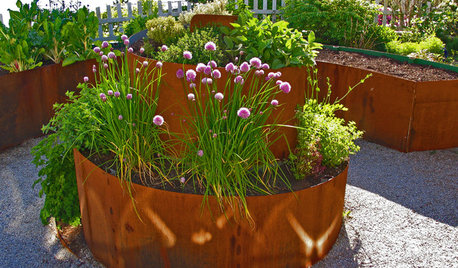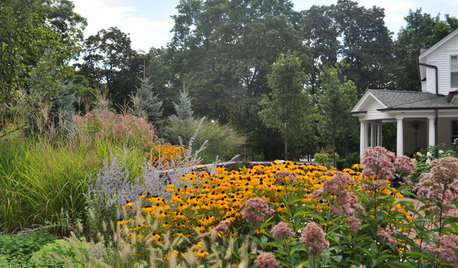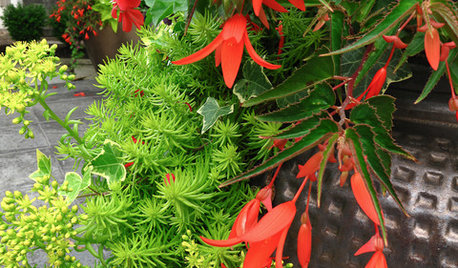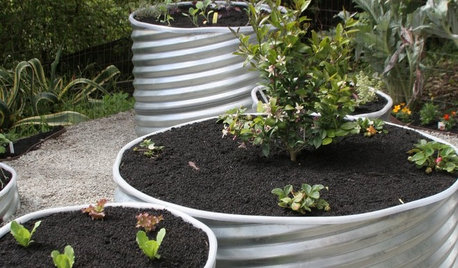Organic fertilizers for containers?
kristimama
16 years ago
Related Stories

GARDENING GUIDESGet on a Composting Kick (Hello, Free Fertilizer!)
Quit shelling out for pricey substitutes that aren’t even as good. Here’s how to give your soil the best while lightening your trash load
Full Story
GARDENING GUIDESHow to Switch to an Organic Landscape Plan
Ditch the chemicals for a naturally beautiful lawn and garden, using living fertilizers and other nontoxic treatments
Full Story
URBAN GARDENSContainers Make Growing Edibles a Cinch
If life hands you a lack of land, grow lemons — with a few basics, you can proudly reap the fruits, veggies and herbs of your labor
Full Story
GARDENING GUIDESHow to Keep Your Citrus Trees Well Fed and Healthy
Ripe for some citrus fertilizer know-how? This mini guide will help your lemon, orange and grapefruit trees flourish
Full Story
GARDENING GUIDESCommon Myths That May Be Hurting Your Garden
Discover the truth about fertilizer, soil, staking and more to keep your plants healthy and happy
Full Story
GARDENING GUIDESPacific Northwest Gardener: What to Do in September
Put in cool-weather veggies, fertilize your lawn and tidy the garden this month before chilly weather arrives
Full Story
ORGANIZING19 Ways to Get Organized Fast With Containers
Make "toss and go" your mantra with bins, boxes and trays, for a home that looks neat in an instant
Full Story
FARM YOUR YARDHow to Grow Vegetables in Containers
Get glorious vegetables and fruits on your patio with a pro’s guidance — including his personal recipe for potting mix
Full Story
GARDENING GUIDESSuperstar Annuals for Containers and Baskets
High performing, low maintenance and all-around gorgeous, these container plants go the distance while you sit back and relax
Full Story
CONTAINER GARDENSContainer Gardening Basics: The Dirt on Soil
Learn the types of potting soil available and the best mixes to help your containers thrive
Full Story






gardengal48 (PNW Z8/9)
skoot_cat
Related Professionals
Windham Landscape Architects & Landscape Designers · Comstock Park Landscape Architects & Landscape Designers · Belmont Landscape Architects & Landscape Designers · Barrington Landscape Contractors · Lynwood Landscape Contractors · San Pedro Landscape Contractors · Soddy Daisy Landscape Contractors · Westford Landscape Contractors · York Landscape Contractors · Crowley Landscape Contractors · North Hills Landscape Contractors · Bensenville Landscape Contractors · Algonquin Decks, Patios & Outdoor Enclosures · Foothill Farms Decks, Patios & Outdoor Enclosures · Larkspur Decks, Patios & Outdoor Enclosureslou_spicewood_tx
skoot_cat
lou_spicewood_tx
kristimamaOriginal Author
lou_spicewood_tx
gardengal48 (PNW Z8/9)
kristimamaOriginal Author
dchall_san_antonio
tmelrose
kristimamaOriginal Author
nms2k